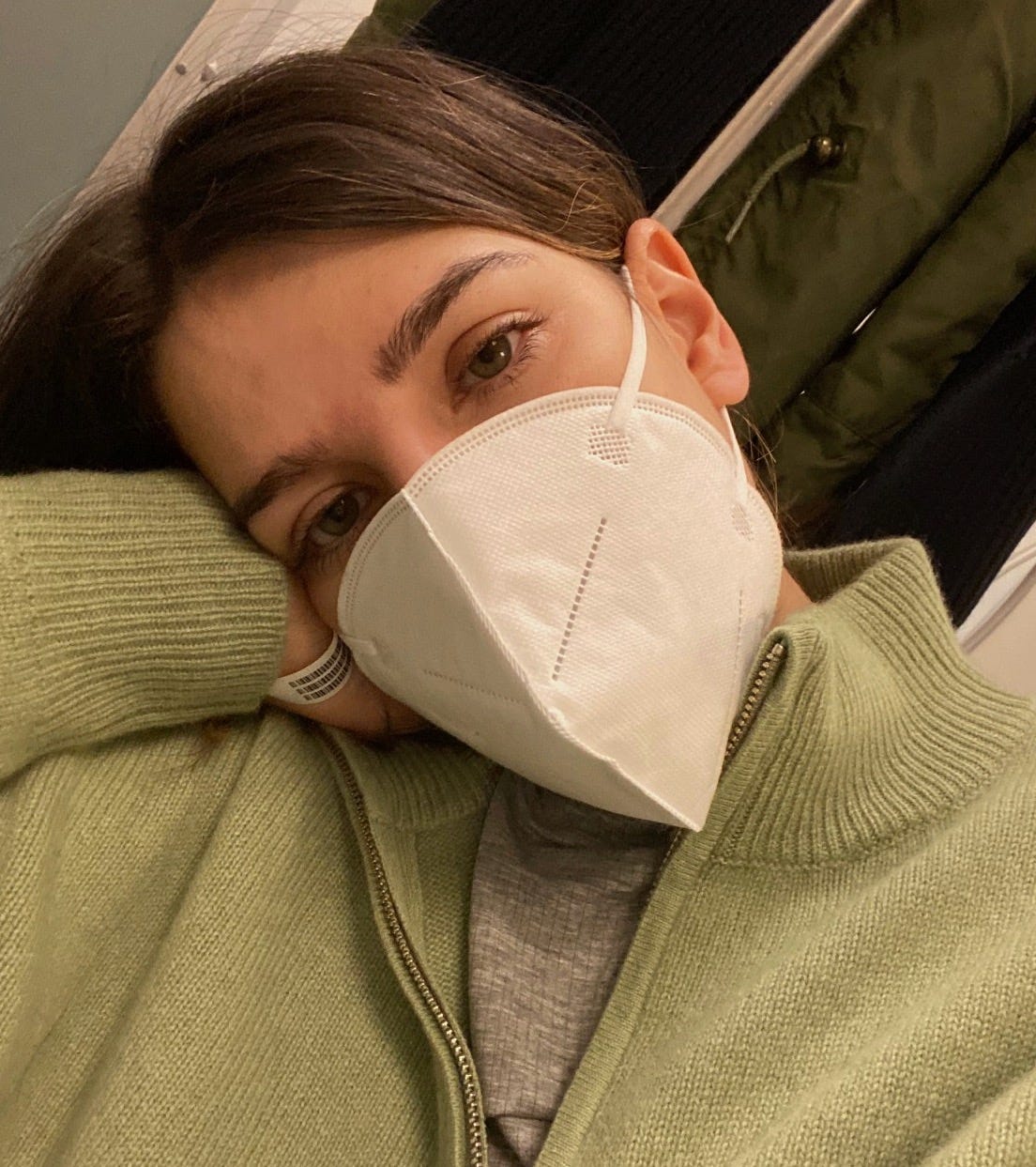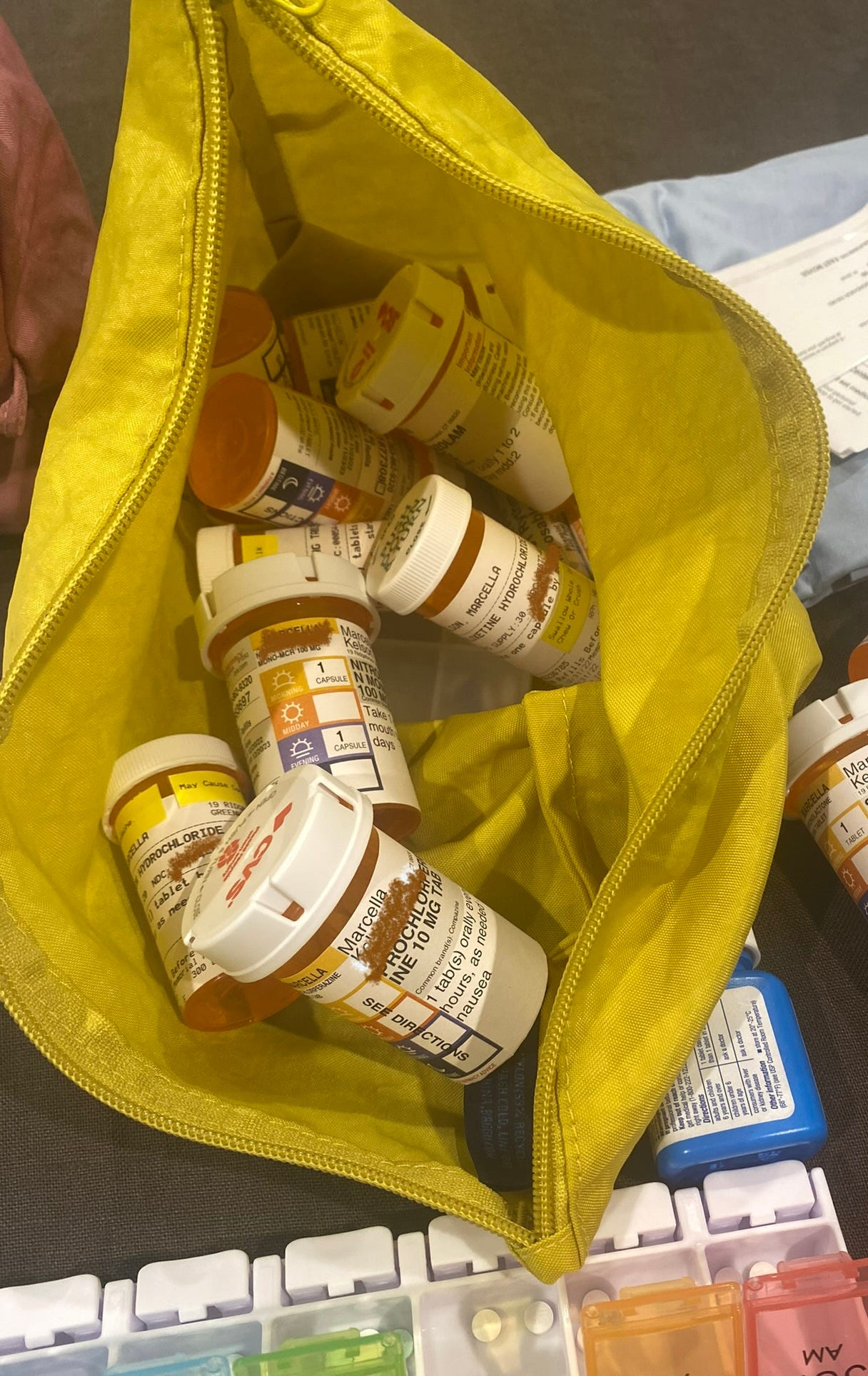In the weeks between my diagnosis and the start of treatment, I fell quickly and very deeply into a black hole of doom. It felt like a neverending spiral of anxiety where, for the first time in my life, no one could honestly tell me I was going to be okay.
I was so overwhelmed, desperate for my old life, longing to wake up from this absolute living nightmare. I could not eat, I could barely sleep and when I slept, my dreams somehow managed to exacerbate my nightmarish reality. I was exhausted, and I had a newborn and a toddler. I realized within hours of my diagnosis that I was going to need a lot of tools to survive cancer treatment mentally and emotionally, let alone physically.

I want to be very honest and candid about all the tools I used. Not just the ones that people are comfortable talking about.
Without question, the two most beneficial things I did for my emotional and mental health upon diagnosis were starting weekly psychotherapy sessions and meeting with a psychiatrist who prescribed me a fast-acting anxiety medication and a low-dose anti-depressant.
Medication can feel hard to justify because it’s so misunderstood. It’s often seen as a cheat or a shortcut. And I understand the reluctance, it can feel scary to use something that impacts your brain and behavior- there are obvious and real considerations when considering whether it’s the appropriate intervention.
In my case, it absolutely was. My anxiety around my cancer diagnosis was so debilitating that I could barely function. And rightfully so - I was justified in feeling terrified. My mind did not feel like a healthy place for me to be, and I felt like I needed to do everything I could to be stable for my family.

It’s an uncomfortable subject to talk about regardless of the fact that I’ve worked in mental health for 15 years now. I still have that part of me that wonders if, without medication, I would have been able to get through. I guess I will never know. But I know there is no prize for getting through without help, and I’m glad I didn’t find out the answer the hard way. I’m especially glad my children didn’t find out the hard way.
Over the next few posts, I intend to talk a little bit more about my own mental health struggles and management during treatment, while parenting and beyond. My hope is to do so in a thoughtful, considerate, and digestible way over a few posts. Kids and cancer have significantly impacted my attention span for reading, so I’ll assume it has done something similar to many of us and keep it short.
Yours Truly,
Marcella
P.S. Your recommendation means the world to me, and our community grows solely on word of mouth. If you know someone who could benefit, please share!





So important to talk about this. I had been on a low dose anti-depressant already but had to up my dosage. I was completely paralyzed in fear when I was first diagnosed, unable to eat and function. You have to do whatever it takes to keep moving forward.
A million praises for this post. When a doctor told me I had a tumor there was no psychiatric support offered. I was too overwhelmed to even know I needed it. Anxiety is too gentle a word for my experience, I was in a constant state of debilitating terror. When my surgeon explained to me later that remission is not possible with brain cancer, the other person on that call was a nurse, not a psychiatrist. When my surgery was delayed and I had a wild animal style violent temper tantrum at the hospital no psychiatric support was offered. When I got my diagnosis after surgery, no psychiatrist. Yes it’s true, I never asked but I am still angry and just deeply confused as to why that support wasn’t offered. I wound up in the ER after that, unable to care for my own child, for a nervous breakdown and finally got on an anti depressant and an anti anxiety medication. I think it saved my life. A year later, I’m off of both. This is why I lurk in support groups to tell others that for many of us these drugs are life saving and essential.